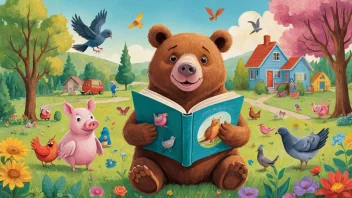Humor is often seen as a light-hearted diversion, an escape from the harsh realities of life, but when woven into the fabric of fiction, it can serve a much more profound purpose. In literature, humor becomes a powerful tool that enables authors to tackle serious topics—such as mental health, societal issues, and personal tragedies—in a way that engages readers and fosters understanding. By using laughter as a vehicle for discussion, writers can illuminate dark subjects, allowing readers to confront uncomfortable truths while simultaneously providing a sense of relief and connection. This article explores the role of humor in addressing serious topics in fiction, examining how it can serve to deepen narrative themes, enhance character development, and ultimately foster empathy and awareness among readers.
Humor as a Narrative Device
In many novels, humor acts as a narrative device that lightens the mood while simultaneously addressing difficult subjects. Authors such as Kurt Vonnegut and Joseph Heller have mastered the art of using satire to critique societal norms and policies. In Vonnegut’s “Slaughterhouse-Five,” for instance, the absurdity of war is exposed through dark humor, making the reader reflect on its senselessness without becoming overwhelmed by despair. Similarly, Heller’s “Catch-22” employs a blend of absurdity and wit to highlight the paradoxes and bureaucratic absurdities of war, allowing readers to engage with the gravity of the situation while also laughing at its ridiculousness. This interplay between humor and seriousness invites readers to consider complex issues from multiple angles.
Character Development Through Humor
Humor can also play a crucial role in character development, providing insight into a character's personality and coping mechanisms. For example, in “The Perks of Being a Wallflower” by Stephen Chbosky, the protagonist Charlie grapples with trauma and mental health issues, yet his use of humor helps him navigate his experiences and connect with others. Through witty observations and comedic interactions, Charlie's character becomes relatable, and his struggles more palpable. This not only endears him to readers but also serves to normalize conversations around mental health, showing that even in the darkest times, laughter can be a beacon of hope.
Exploring Social Issues with Wit
Humor is particularly effective in exploring social issues and injustices. In works like “The Hitchhiker's Guide to the Galaxy” by Douglas Adams, the absurdity of life and the universe is portrayed through humor, prompting readers to reflect on the human condition and societal norms. Adams tackles themes of existentialism and the bureaucratic nature of life, all while keeping the tone light-hearted. This approach encourages readers to question authority and the status quo without feeling attacked or defensive, making them more open to considering alternative viewpoints.
Creating Empathy Through Laughter
One of the most significant impacts of humor in fiction is its ability to foster empathy. By presenting serious topics through a humorous lens, authors can create a sense of shared experience that allows readers to connect more deeply with characters and their struggles. For instance, in “A Man Called Ove” by Fredrik Backman, the protagonist’s grumpy demeanor and the humorous situations he finds himself in serve to humanize him. As readers laugh at his antics, they also come to understand his underlying pain and loneliness. This duality encourages readers to empathize with individuals who may be struggling with similar issues, bridging the gap between understanding and compassion.
The Balance Between Humor and Seriousness
While humor can be a powerful tool in addressing serious topics, it is essential for authors to strike a balance between levity and gravity. Overusing humor can trivialize serious issues, while an absence of humor can render a narrative too bleak and inaccessible. Authors must carefully consider the tone of their work and the message they wish to convey. For example, in “Where’d You Go, Bernadette” by Maria Semple, the lighthearted humor is used to address themes of mental illness and societal expectations, creating a nuanced exploration of the protagonist’s journey. By maintaining this balance, authors can craft narratives that resonate with readers on both emotional and intellectual levels.
Conclusion
In conclusion, humor plays a vital role in addressing serious topics in fiction, offering a unique lens through which readers can engage with complex themes. By using wit and laughter to tackle issues such as mental health, societal critique, and personal struggles, authors can create narratives that are both thought-provoking and relatable. The interplay of humor and seriousness not only enriches character development but also fosters empathy and understanding among readers. As we continue to explore the depths of human experience through literature, it is clear that humor, in all its forms, remains an essential element in the storytelling toolkit.






